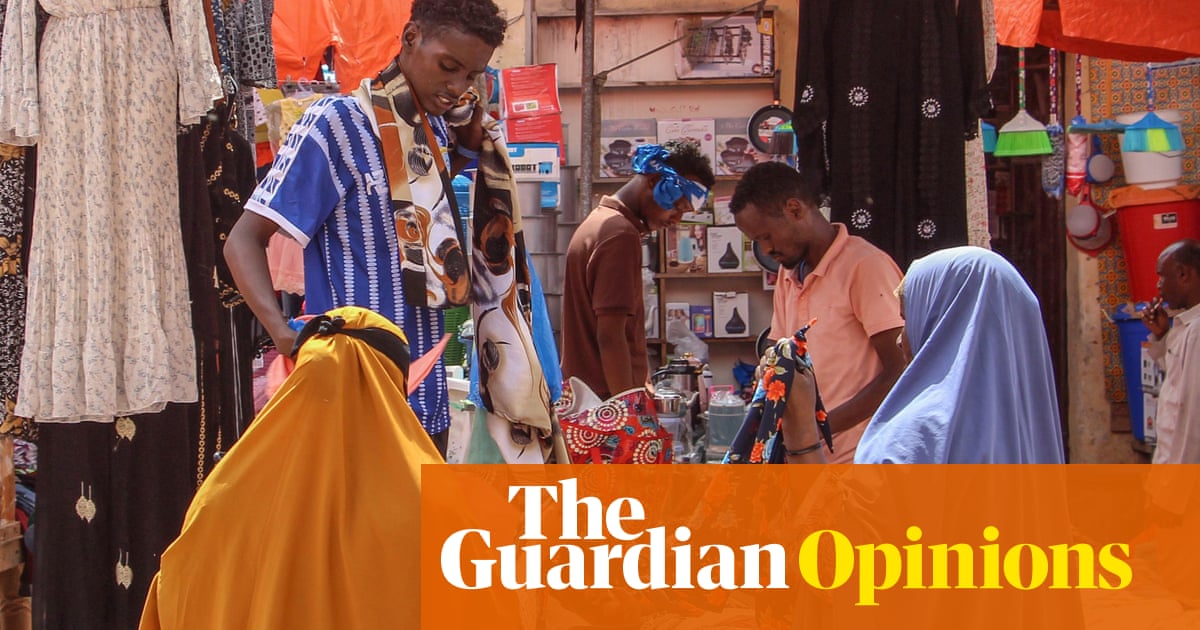Pope Francis’s vast funeral in Rome on Saturday featured a certain amount of politicking amid the splendour, against the magnificent backdrop of St Peter’s basilica.
Ifthe meeting between Volodymyr Zelenskyy and Donald Trumpresults in progress towards a less inequitable peace than the one currently envisaged by the US, perhaps that will be fitting, given the late pontiff’s consistent calls for an end to war.
But in Washington last week, at the IMF andWorld Bank, where the architecture is far less glorious, campaigners struggled to find much backing among the powerful for another aspect of Francis’s worldview – his calls to make 2025 a Jubilee year of debt forgiveness for the world’s poorest countries.
A quarter century on from the hugely consequential Jubilee 2000 movement – in which churches played a major role – the pope had asked a commission chaired by the economist Joseph Stiglitz, to report on the issue next month.Debt reliefis also likely to be discussed at the UN Financing for Development conference in Seville in late June.
But there was little optimism in Washington that any country is prepared to offer the necessary moral and political leadership to force the issue up the agenda. Certainly, it will not be the UK, which played a crucial role in the Jubilee 2000 campaign under Gordon Brown, but has shown little interest in the issue since imposing brutal cuts to aid spending, to boost defence.
Meanwhile, ample evidence was shared in Washington to show how the situation is rapidly deteriorating. The IMF’s analysts warned that Trump’s dramatic shake-up of the global trading system, the final shape of which remains impossible to guess, willdepress economic growthand ratchet up the risks of financial crisis.
For emerging economies, the outlook is especially bleak. Many had already been left heavily indebted, after grappling with the Covid pandemic. And asthe IMF’s Global Financial Stability Review made clear, one side-effect of the market chaos triggered by Trump’s “liberation day”, is likely to be tighter financial conditions.
That will make it harder, and more costly, for countries to refinance their debts – a problem the IMF said could be compounded by fresh volatility in the currency markets.
The more is spent on debt repayments, the less is available for important areas of government spending that are necessary for development. As Achim Steiner, head of the UN’s development arm, the UNDP,said on the sidelines of the spring meetings: “The debt servicing is essentially a defunding. We’re defunding, or forcing countries to take money out of their social and welfare and education budgets and health budgets just to service their debt. This is for obvious reasons bad: it’s not sustainable and ultimately contributes further to locking countries in into this stagnation.”
He added: “If you are defunding your own education system, you’re locking yourself into a generation that is going to fall behind.”
Sign up toBusiness Today
Get set for the working day – we'll point you to all the business news and analysis you need every morning
after newsletter promotion
A report by the British thinktank Development Finance International into tackling inequality in eastern and southern Africa, published at the spring meetings, found that 40% of countries in the region spent more on debt servicing last year than on healthcare and education combined. Since 2022, 80% have cut social spending as a share of their budget.
This comes at a time when the economic impacts of the climate crisis are already being felt, in the soaring costs of extreme weather events for example. There is a consensus, at least outside the White House, that significant investment will be needed to manage the transition away from fossil fuels.
Another report launched in Washington last week– from the expert panel on climate and finance, a joint project of the Colombian, French, Kenyan and German governments – warned of a “vicious circle”, between the “debt, climate and nature crises”.
“Debt pressures and environmental vulnerabilities are most pronounced in the poorest and most credit-constrained countries … yet these countries account for only a tiny fraction of the consumption and emissions driving nature loss and climate change,” they said.
Even the IMF itself suggested last week that debt restructuring may need to be part of the toolkit to respond to the rapidly changing economic and financial situation.
“The path forward demands clarity and coordination. Countries should work constructively to promote a stable and predictable trade environment, facilitate debt restructuring, and address shared challenges,” it said in its World Economic Outlook.
But campaigners complain that the IMF’s debt restructuring process, the Common Framework, is cumbersome and time-consuming – and can still leave beneficiaries with high servicing costs, because it doesn’t contemplate debt write-offs.
Scott Bessent, the US Treasury secretary, when he wasn’t taking anti-woke side swipes at the IMF and the Bank, said he would like to see the IMF get more involved in restructuring struggling countries’ debt. In amuch-analysed speech, he said the IMF should “more proactively push official bilateral lenders to come to the table early, to work with borrower countries to minimise periods of debt distress”.
Some development campaigners seized on his comments as a positive sign that the US would not stand in the way of multilateral efforts to ease the burden for the world’s poor.
But others warned that in saying that he wanted to “make the IMF again”, and calling for it to be a “brutal truth teller”, Bessent appeared to be yearning for a return to the bad old days of economic shock theory, when the Fund swept into struggling countries and imposed a prescription of harsh spending cuts and privatisation.
Meanwhile, as they geared up to amplify Francis’s calls for a jubilee, some in Washington last week privately warned it may take a large-scale default to force the world’s powerful to accept the need to lift developing countries’ debt burdens. Let’s hope it doesn’t come to that.
